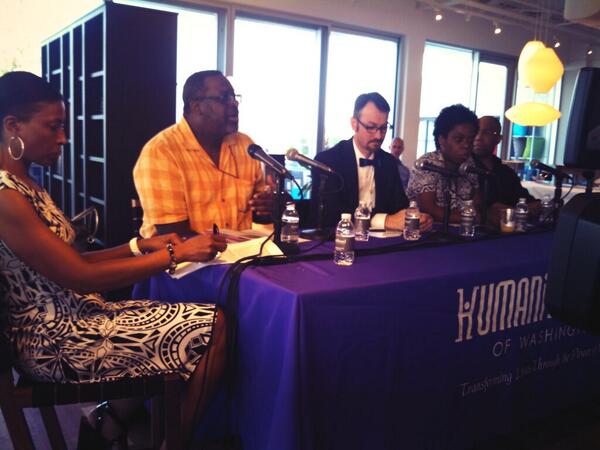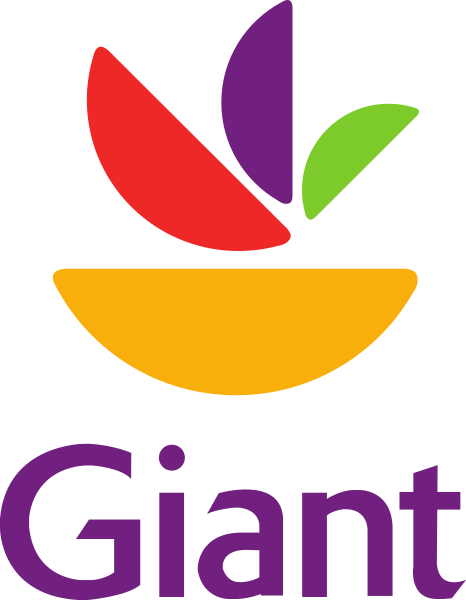Logan Circle Community Association, “Logan Circle Heritage Trail Education Curriculum”
The Logan Circle Community Association (LCCA) will, with Garrison Elementary School, Cultural Tourism DC (CTDC), and instructional specialist Chris Magnuson, develop a curriculum outline for 4th and 5th graders that will accompany the forthcoming Logan Circle Heritage Trail. The Heritage Trail, which will be dedicated on July 13, 2013, highlights the civic and cultural history of the Logan Circle neighborhood via beautifully crafted signs that will be mounted on public property along 15 stops throughout the Logan Circle neighborhood.
Chowan Discovery Group, "The Gold Coast"
Chowan Discovery Group will produce a 15-25 minute documentary about Washington, DC's upper 16th Street, NW neighborhoods of Crestwood, Shepherd Park, Colonial Village and North Portal Estates during the period of the 1950's to the 1990's, when most of the population was made up of African-American leaders in the areas of law, education, healthcare, government administration, military and business. The film will include interviews with residents of multiple generations.
Crestwood Citizens Association, "Crestwood History Project"
The Crestwood History Project will publish a book tracing the little-known history of a neighborhood united within consistent boundaries since its first survey in 1720. This published history, full of photos, drawings and maps, will not only provide Crestwood residents with an enhanced sense of community, it will help give the neighborhood its place in DC history alongside nearby areas that have been better documented.
 |
| Paul Laurence Dunbar High School |
Paul Laurence Dunbar High School Convocation and Alumni Federation, "Dunbar High School Student Project on Dunbar Alumni Legends and Pioneers"
This exciting new project will engage students at Paul Laurence Dunbar High School in a range of educational, research and training experiences providing skill sets that will be beneficial in college and in any work environment. Students will research and identify Dunbar alumni and faculty that have made historically significant and vital contributions to the District and nation.
Anacostia Community Outreach Center, "The Langston Terrace Dwelling Oral/Video History Project"
The Langston Terrace Dwelling Oral/Video History Project will give the Langston Dwelling Summer campers an opportunity to learn, witness and embrace the importance of the history of their community. The young people will research the history of Langston and interview, photograph and video artifacts of several residents and other stakeholders of the community to be included in the final presentation. The final presentation will include a program open to the community that will feature a showing of the finished product at the Anacostia Community Outreach Center office.
Female Union Band Society, "Mt. Zion/Female Union Band Historic Memorial Park Foundation Website Development Project"
The Foundation seeks funding to hire a web designer to design and launch a website for the Foundation. The website will be a valuable tool for the Female Union Band Society as they work to increase visibility of the Mt. Zion and Female Union Band cemeteries and will also serve as an effective means of distributing historical information to researchers, tourists, and the community.
Neighborhood Farm Initiative, "DC Garden Oral History Project"
This oral history project will record interviews with older Washingtonians who have spent significant portions of their lives growing their own food and have participated in Washington's local food economy and culture. By conducting interviews with a diverse group of individuals across the District, they will document not only each gardener's individual story but also the culture, traditions, and practices of food-growers in this city. Interview questions will be geared towards capturing the ways that food has connected people in their neighborhoods and communities at different points in history.
Deanwood Heights Main Streets, "Master Builders of Deanwood"
Deanwood Heights Main Streets (DHMS) will host a Saturday seminar and screening of Michelle Jones' latest film about African-American architects and their work in DC. The seminar will focus primarily on examining the stories of the architects who lived and worked in Deanwood.
African American Holiday Association, "African American Pioneer Muslimahs in Washington, DC (Part Two)"
This project is Part Two of the first documentary completed in 2011 through a grant from the Humanities Council of Washington, DC.The producer will conduct another set of interviews with four or five elderly African American Muslim women (Muslimahs) who were not included in the first film. The project's goal is to tell the history of these "sisters" in their 80's and 90's, including the challenges they faced as they converted to a religion and way of life that seemed "foreign" to many. Some of these Muslimahs helped to build DC's only "temple," now the masjid, from the ground up.
Universal Negro Improvement Association Historical Society, Inc., "The Impact of Marcus Garvey and the UNIA in Washington DC"
This three day project will feature an exhibit, discussion, and tours on impact of Marcus Garvey in Washington, DC. All of the programs will be held at the Americas Islamic Heritage Museum in Historic Anacostia.
Black Student Fund, "Remembering the Dream Makers of Black Student Fund"
Black Student Fund (BSF) scholars will archive, research, and document the history of BSF. The research will focus on the organization's leadership and its impact on the DC independent school community. As part of the project, BSF will produce a video on archival and historical research techniques to guide the young scholars in their work. The project will be conducted in preparation for the organization's 50th anniversary in 2014.
Henson Arts in Learning, "Citizens We"
The Citizens We Project is a photographic portrait of the people in the neighborhoods of Adams Morgan, Mt. Pleasant, and Columbia Heights in Washington, DC conducted in partnership with the Shrine of the Sacred Hear Dinner Program. The project will consist of an exhibition of thirty 17 x 25 inch black & white prints of clients from the Shrine of the Sacred Heart Dinner Program, and an online publication about the Dinner Program and the challenges of immigration in contemporary American society. The publication will be available online for free and sold as a soft cover book.
ANC7B, "We are Fairfax Village"
“We are Fairfax Village” is a project working to document the extensive history of the Fairfax Village neighborhood. The mission is to: 1) pursue and value the oral histories of past and current residents of Fairfax Village, 2) perform historical research of various resources related to Fairfax Village, 3) work collaboratively to author, illustrate, and share documents in accessible and user-friendly ways.
WSC Avant Bard, "Kendall Green and the National College for the Deaf"
WSC Avant Bard will develop a play that explores the history of deaf culture and the history of Kendall Green. The play will be researched by professional scholars and written to convey the history of this often ignored piece of DC's historical narratives to a diverse audience.
All African People's Development and Empowerment Project, "Marcus Garvey Enrichment School Documentary Project"
The Marcus Garvey Enrichment Documentary Project will work with African American youth living in the Barry Farms community of Washington D.C. Youth from the ages of 13-18 will produce a documentary about the historical Barry Farms community, its current social history, and the thriving culture that highlights the positive culture of Barry Farms, but also the historiography of Southeast, Washington D.C. The initial phase of this project seeks funding for research and development of a proposed documentary that audio-visually depict the rich, but under-represented African American youth’s perspective on the current issues of Barry Farms and the broader African American Washington, D.C. community.
Military Road School Preservation Trust, "Oral History of the Military Road School Alumni before 1954"
As part of the Sesquicentennial observance of the Military Road School, a video of oral histories provided by alumni who lived in the Brightwood community as well as nearby Maryland and attended the School from the 1930's to 1954 will be developed for the purpose of corroborating the educational legacy for which it was well known until closing as a D.C. public school in 1954.
The oral history collection will be accessible to the general public online as a resource that will enable students, teachers, and a wide range of ordinary citizens to witness the academic, social and cultural aspects of what school life was like for preceding generations of African-Americans.
Community Resources Incorporated, "A Loud Silence: A Visual Code on the Underground Railroad"
The Song Yet Sung, by James McBride is the most lyrical, profound, and mystical rendition of the enslavement experience because it centers around, and depicts the use and power of “The Code”, a complex system of signs, symbols, and markers as well as the individuals who connected them to one another and who created a path for enslaved people seeking freedom.This project will research the Underground Railroad in DC, obtain maps of the topography and terrain at the time, create mixed media work depicting the markers, codes, symbols and signs uncovered, and tell the story of their composition, creation, use and meaning.
Rehoboth Baptist Church Historical Committee, "Documenting History of Rehoboth Baptist Church (150 Years)"
Rehoboth Baptist Church will gather, organize, catalog, and archive materials to prepare a comprehensive book on the history and life of Rehoboth Baptist Church (1864-2014). The Rehoboth Baptist Church was founded by former slaves and is one of the oldest Black Baptist Churches in the city.
Join us in December when each of these projects will be presented at the DC Community Heritage Project Showcase!






















